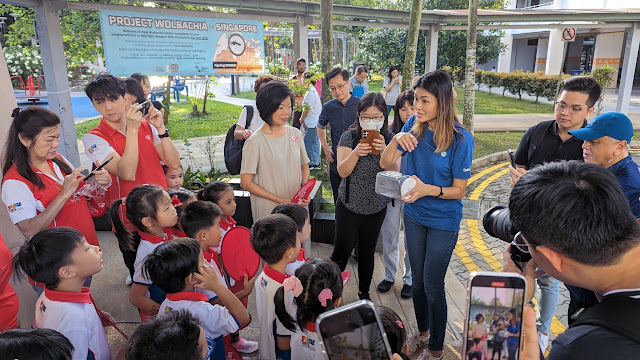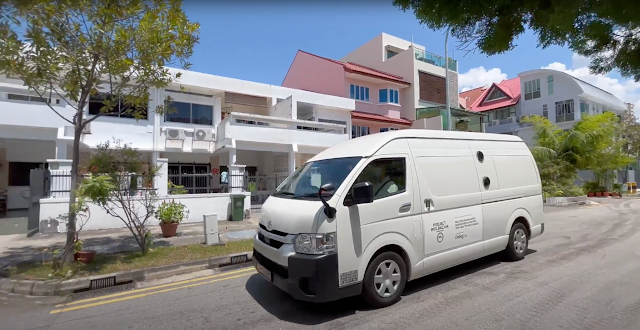Following positive results from release of male Wolbachia-carrying Aedes aegypti in Singapore, we are happy to announce that Debug is supporting the expansion of Project Wolbachia in Singapore to cover 5 new residential sites to increase Project Wolbachia’s coverage from 350,000 households in 2023 to 480,000 households by Q1 2024 - an increase from 26% to 35% of households in Singapore.
Results from NEA’s Project Wolbachia – Singapore
Aedes aegypti mosquito populations in the existing study sites of Bukit Batok, Choa Chu Kang, Tampines (releases done by Debug by Verily since 2018), and Yishun have generally fallen by more than 90 per cent. Data from 2019 to 2022 indicates that residents living in areas with at least one year of releases were up to 77 per cent less likely to be infected with dengue.
Results from Debug’s release areas.
The heatmaps in Tampines and Marine Parade below show the “eraser effect” where releases of male Wolbachia-Aedes mosquitoes has decreased the dengue risk over time.
Source: NEA website
The increased capacity for Project Wolbachia from 7 million in 2023 to 11 million male Wolbachia-Aedes mosquitoes produced and released weekly is made possible by Singapore’s National Environment Agency (NEA) and its collaboration with Debug. By the end of Q1 2024, Debug will be producing and releasing more than 6 million male Wolbachia-Aedes mosquitoes per week for Project Wolbachia in Singapore .
Debug has been using its proprietary automation technology for the production, sex-sorting, and release of male Wolbachia-Aedes mosquitoes at the Tampines and Marine Parade study sites since 2023, following a collaborative research from 2018 to 2023.
 |
| Verily's Program Manager Yanni Yoong explaining to Senior Minister of State for National Development and Foreign Affairs Sim Ann and pre-school children how male male Wolbachia-Aedes mosquitoes are released via hand containers at the expansion of Project Wolbachia in Clementi residential estate. |
 |
Male Wolbachia-Aedes mosquitoes are released using Debug’s vans to efficiently cover larger areas and evenly disperse mosquitoes among the blocks.
|
1Around 4 million male Wolbachia-Aedes mosquitoes for the expansion sites and around 2 million for the existing sites (Tampines and Marine Parade) are produced and released weekly.